#Terraforming (trope)
Explore tagged Tumblr posts
Text
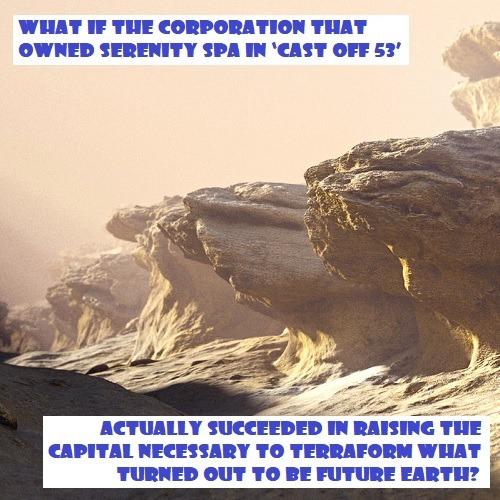
What if the corporation that owned Serenity Spa in ‘Cast Off 53’
actually succeeded in raising the capital necessary to terraform what turned out to be future Earth?
#Inspector Spacetime#Terraform (trope)#Terraform#what if#the corporation that owned#Serenity Spa#Cast Off 53 (episode)#actually succeeded#in raising capital#to terraform the planet#what turned out to be#future Earth
1 note
·
View note
Text
okay y'all seemed to like the last one so here's a few more Horizon 3 thoughts:
Aloy won’t die. It would completely upend the series’ themes and just be really nihilistic.
Since Nemesis is a gestalt entity I think it’s a safe bet that we’ll see Sam Witwer, Carrie-Anne Moss, etc again. I’m curious how they’re going to do it because at least structurally, it’s basically a reaper. Maybe it’ll use different Avatars when communicating like the Leviathan in ME3.
It's gonna take some work to make a flashback/dream/vision not contrived but I would love to see Varl and Rost again. I think we deserve that.
Minerva is gonna have its work cut out for it blocking access to both the dormant Faro Swarm and the ZD terraforming system.
I wouldn’t be surprised if Nemesis has some sort of corruption function that becomes the equivalent of the corruption in HZD. It would be a really fun tech showcase if GG uses Zenith nanotech for machine corruption and leans into mechanical body horror.
If we’re going to Ban-Ur I really really hope they do the work to make the Banuk less problematic and more fleshed out as a culture. A quasi-Spartan society absolutely would not survive in an extreme environment, *especially* without megafauna to hunt. The Banuk characters are lovely and well-written; they deserve a society as well thought out as the Utaru or Carja. I’m honestly fine if there’s retcons or revamps to the cultural lore because the whole “outsider barges in and becomes chief” is rooted in racist, colonial tropes and we just don’t really need that imo.
The most recent footage of Death Stranding 2 (also running on Decima) has me SO excited for the visuals. GG’s gonna knock it out. The facial rendering and animation that Kojima Productions are doing looks industry-peak and I’m sure GG’s gonna match that. Aloy’s Gay Panic™️ scene on the beach in HBS is already top-tier nonverbal storytelling through animation. Digital Foundry actually just posted a really cool tech breakdown of the current Decima engine. I’m especially excited about the environmental stuff. The ocean simulations in HFW are already incredible and I hope they increase verticality in the world. I can’t wait to see the Sacred Lands in current gen graphics.
I really love Kotallo’s DIY arm and it’s so so important to his development but Beta and Gaia now have access to Zenith nanotech, maybe give your buddy a sick upgrade hmm?
Speaking of, I can’t wait to see Beta come into her own. She’s one of the best parts of HFW and Aloy’s character absolutely shines in a sibling dynamic.
I wouldn’t get your hopes up for a romance mechanic. Everyone’s feelings on that aside, it would be really odd from a game development perspective to just overhaul part of how the narrative develops Aloy’s character in the last act of the story. Yeah, there are flashpoints but I would argue that the presence of choice in Horizon is smoke and mirrors- cosmetic at best. Kentucky Route Zero (which you should play) does something similar where the player is given a certain amount of control over the substance of individual conversations and scenarios and it does absolutely nothing to alter the plot, by design. I think it’s the same here - this isn’t really a choice-based RPG, the flashpoints don’t really affect anything plot-wise or for Aloy’s character development. Olin is still out of the story, Nil lives, Regalla still dies one way or another. Aloy’s character development is pretty firmly on rails (think Jin Sakai, not Shepard - you get to guide some momentary character reactions but that’s it). I don’t think HBS is a testing ground either - If they were gonna introduce a romance mechanic I think they’d just do it, and not spend two years making a direct continuation of HFW’s main quest and establishing a specific romance hard-baked into the plot, complete with multiple leitmotifs for the character relationship (which is something they haven’t done before afaik) just to introduce a side quest mechanic coming in 5 years. I genuinely can’t think of any game or dev that has beta tested a major alteration to upcoming game mechanics that way - it doesn’t really make any sense in terms of developer resources, and these games are extremely time-consuming to make. I know this is a thing a bunch of people want and I can totally empathize with that! I just think it’s probably not on the table.
I would bet money the series will bookend itself and the epilogue will involve a) the naming of Zo and Varl’s kid and b) Lis’ pendant.
Mostly I'm just looking forward to being surprised. One of my favorite things that Horizon does is use carefully established elements in the world to pull the plot in unexpected directions and keeping the world grounded while they lean into speculative science fiction. I can't wait to see what Guerrilla is cooking up
#horizon 3#horizon zero dawn#horizon forbidden west#horizon#hfw#aloy#guerrilla games#hzd#horizon burning shores#horizon theories#well not so much theories as observation and vague speculation#and some zesty takes#I love this world though#erend#sylens#varl#kotallo#beta#alva
134 notes
·
View notes
Note
That ficlet of “How long can Helsknight and Wels go without wanting to maul each other to death” gives me the idea of like. Yknow that trope where two characters you assume have never met each other turn out in fact to be buddies who like play pool together or something. That’s Helsknight and XB. Wels gets shunted to Hels and finds XB just chillin in a bar with Hels and goes “WHAT THE FUCK BRO”
"Hels Kitchen, huh?" xB asked, looking up at the sign and raising a spined eyebrow. "This new?"
Helsknight shrugged, leading the way inside. "New enough."
xB sauntered behind him, taking in his surroundings with an easygoing smile. Hels was a little hot for his tastes, but he knew from experience he would get used to the heat after a few minutes. He watched Helsknight toss the bartender (who seemed to be just a very large, contained ghast) a handful of diamonds to cover their tab, and the two made their way to the pool table in the back of the little bar. xB swiped up a couple beers, snapped the cap off one with his teeth (those sharp guardian teeth were good for something after all) and set it down on the side of the table while Helsknight prepped the game.
"It's been a hot minute," xB observed, carefully checking over pool cues for one that wasn't bent. "Been busy busting heads in the Colosseum?"
Helsknight shrugged. "Nah. Mostly just caught up with life stuff. You know how it is."
xB, who had forgotten their meet up last month because he was busy digging a hole to bedrock, knew exactly how it was. "So you haven't been practicing pool while I've been gone?"
"I'll still beat you," Helsknight grinned challengingly. "Guests break."
xB snapped the cap off the second beer, took a drink, made a face that Helsknight laughed at, and then got to work aiming his shot. It was a good break, though the eight ball danced by one of the side pockets, a little too close for comfort. He got one of the striped balls in, and claimed the stripes for the rest of the game. He took his second shot, missed, and stepped aside for Helsknight.
Pool was such a weird game for them to settle on as their friendly competition. Helsknight was a pro at PvP, all things swords and axes and shields. But xB wasn't, and even if it was, swords was Helsknight's job, more or less, and xB could appreciate wanting to do something that wasn't your job, no matter how much you enjoyed it. It was for the same reason he was grateful Helsknight hadn't suggested they go build train cars when they hung out, or terraform movie scenes. He enjoyed it, but this was his off time. The first couple times they met up, they tried playing TCG, but Helsknight was a little too competitive, and xB got tired of debating rules minutiae (and being forced to stomp home and ask Beef a thousand questions). Then they played just normal cards, which lead to the discovery they both appreciated good beer, which lead to barhopping, because hels had bars. Hermitcraft didn't. And eventually, barhopping lead to playing pool, and pool was just the kind of low-stakes game they could both enjoy. Plus both Helsknight and xB were just prickly enough that most folks looking for a fight passed them over, and any who didn't, xB and Helsknight could solidly knock around. xB wasn't a PvPer, but he was big and thorny, and his sharp teeth were good for more than just popping bottle caps.
"You're up," Helsknight told him, leaning against the wall and chalking his pool cue.
"Does that really help?" xB asked, lining up his next shot. He cracked the cue ball into a bunch, breaking them apart. None of them sunk.
"No idea," Helsknight shrugged, putting the chalk back on the side of the pool table. "If it does, it's not in any way I can see."
"So why put it on?"
"That's all this game is good for. Knocking things around and getting chalk on your hands."
"It's also good for avoiding things," xB smirked. "Left the cue by the eight ball for you."
"Rude."
"Just keeping your life interesting."
Helsknight danced around the table, trying to find a good angle and making increasingly frustrated faces. xB smirked and took another sip of his beer, and then grimaced, because he forgot how bad it was. He needed to make sure he remembered this brand so they never got it again. Helsknight had just about lined up his shot when the lights in the already dimly lit bar space flickered ominously. xB raised a questioning eyebrow in the knight's direction.
"What was--"
"XB!" Welsknight came stumbling out of nowhere, all tin-can-armor-clatter. Stumbled into the pool table, shaking the eight ball into the side pocket.
"Hah! I win," xB grinned.
"You did not," Helsknight snapped, slamming his cue in the pool table. "That wasn't fair and you know it!"
"He's your other half dude. It counts."
Helsknight's eyes narrowed, and xB held up placating hands. (He forgot how much Hels and Wels hated each other sometimes. Really it was like watching brothers argue.)
"What in hels is going on?!" Welsknight demanded, re-injecting himself into the conversation. "xB, Hypno said you--"
"See, I told him not to tell you where I was," xB huffed, crossing his arms. "That was just rude of him."
"What are you even doing here?!"
"Playing pool," xB smiled, at about the same time Helsknight spat, "None of your damn business!"
The two knights glared at each other.
xB quietly wondered if he should interrupt their spat or egg them on.
The large ghast behind the bar counter hissed, grabbing all of their attention. It wafted a tentacle over to tap a sign, that said: Anyone caught fighting must buy a round for the bar, or be thrown out. xB looked back at Helsknight, watching him count first the other patrons in the bar, then the diamonds still left in his coin purse, do some mental math, and decide rather magnanimously that decking Welsknight wasn't worth it.
xB offered Welsknight a pool cue, "Care to join us?"
Welsknight eyed the pool cue like it was a snake, before begrudgingly taking it. xB went to get a new stick for himself while Helsknight begrudgingly reset the game.
It really was a good game when you wanted to avoid things.
#wooshofficial#helsknight#xbcrafted#welsknight#ahhh the rich inner lives of the hermits and helsmets#what a fun idea!! thank you woosh :D
147 notes
·
View notes
Note
Human sciens is simply fuck around and find out
So when the humans give a tour of the labs so alliance members see what the crazed apes are up to, suddenly BOOM the halls shake and lights flicker but the tour group is fine while the one giving the tour says something like "Ah thats the sound of progress" all while there's people rushing by with guns and extinguishers yelling about a code Red and subject escape
[22/09/23] Nice, that is a fun trope to work with. I think I'll leave the dinosaur crew be, and have some other questionable research station make a debut with an "accident". [23/09/23] Idea pops in my head after several rejections - Human-alien hybrids (because you can't cross-breed because that's not how biology works, but Humans are still curious, because of course we are) [24/09/23] Actually, no, I don't like that: 1st - fairly common as is; 2nd - doesn't feel right with the Humanity I'm writing out. No, I think a better avenue is, since Earth in this verse is gonna collapse in on itself in under a century, experiments towards terraforming methods, since that's a requirement and thus a literal blank check for any- and everything. Yes. (mad scientist voice) Yeessss, I can see it taking shape! [25/09/23] It took some kind of shape indeed.
_____________________________
Biology is the most diverse and complicated field of research with literally no end in sight. We will eventually discover every law of physics, and, yes, chemistry also has the potential for limitless combinations, only in biology can you find and create circumstances where trillions of different organisms co-exist and co-operate, compete, and can create a stable and self sustaining system. Not to mention mutation and evolution across generations, as well as the myriad of changes and adaptations a single organism can undergo in its singular lifespan. The potential is truly beyond the bounds of imagination.
Since biology is an omnipresent field in every civilization, it is only natural that it didn't take long before a Human led joint Coalition Flora research station was established - the Efflorescent Sneezewort Yarrow.
It is also natural that not long after that the non-Human staff sent this panicked message:
The Humans are insane! First, there is no regulation for anything beyond decontamination, which would be fine, if - IF - they didn't sometimes just bring the test materials out with them anyway for, and I quote: "Let it experience the outside world" or "Introduce it to my other plant buddies." The head researcher, instead of reprimanding this clearly dangerous behavior, just lets it happen. As a matter of fact, he almost exclusively and constantly ingests a plant-based gaseous substance through a device he calls a "bong" and locks himself for days on end within a random lab and, as he put it while looking at the ceiling: "Feel out the connections. We're all part of one whole, and only by becoming one with the roots of the soul can you truly attain the understanding of the spirit, and unlock the true calling of each sapling." As I draft this emergency message, there is a shuttle going through decontamination with two squads, one is an extreme disaster containment unit, the other a full on military special forces unit. With heavy duty weaponry. The worst is what they had to say: "Yeah, sometimes one of these nutcases gets the idea to combine plants with animal genes, and, to be fair, with access to the whole Coalition database and samples, I get it. There's a lot of really weird and cool creatures out there on each planet, makes most people at least think about playing scientist. Anyway, it's gonna be fine, the code said it was just a Mini HoH, so we'll be done in under an hour and you can all go back to doing your thing. I just hope we don't have to burn the thing this time, the prof said it's something like a dandelion and a small rainforest actual almost-lion from one of the real far out planets, but it's got bunny ears and the nose of a German shepherd, sorta. I think that's kinda neat." By the way, HoH stands for, and I am not making this up and the translator did get it right - House of Horrors. They claim it is just an homage to a piece of old Human culture. I don't believe them. I refuse to be a part of this madhouse for any longer than I must. Send a vessel and return me to a normal laboratory setting. I will now incubate myself in a cryo-pod to prevent any more exposure to these "scientists". Thaw me out in clean garbs and with two interns already doing real work on new medicines.
#humans are space orcs#humanity fuck yeah#humans are deathworlders#humans are space australians#humans are space oddities#carionto
150 notes
·
View notes
Text
Common gripe amongst those that didn't enjoy Romulus is that the cast is "too young". I assume its because most horror movies feature a young cast nowadays, to the point that these people can't really see it as anything more than an overdone trope, but this movie's plot like.. really wouldn't work if the cast was around Ellen Ripley's age. The plot hinges on them being at a particular turning point in their life, one that only really ever happens once in a lifetime. These are the kids that were promised a life on a vibrant flourishing planet by Weyland-Yutani, and they're now at an age where they're no longer that easily fooled. They realize they'll never see their sun as long as they stay rotting at their colony, but they're not yet at the age where they'd give up and come to terms with this fate. They haven't yet grown completely jaded and complacent, and they refuse to die in some dark damp mineshaft or toiling in a barren farm like their parents have. Most older folk would probably see the Renaissance Station as a deteriorating death trap, but they saw it as their last hope of getting out of their miserable half-terraformed rock. They're still young enough to make risks older folks wouldn't, aspiring toward a goal most older folks wouldn't even consider anymore. If they went with an older cast, most of the plot wouldn't really work that well anymore, and they'd probably have to revise so much of it that they'd accidentally end up making a complete rehash of the original Alien.
32 notes
·
View notes
Text
Book recs: possession, bodysnatching and bodysharing
Demons, ghosts, aliens, sentient bacteria, artificial intelligences - isn't there something fascinating about the idea of sharing a body with another being like a giant get-along t-shirt? No? Too bad, because I'm going to tell you about books featuring this trope anyway.
A note: multiple of these books are sequels where the bodysnatching/possession aspect plays little to no part in the first book. In all these cases, I still recommend starting with book one. I also in one case chose not to include a certain sequel that I loved as even mentioning it in this context would be a huge spoiler, so, uh, sorry about that.

For more details on the books, continue under the readmore. Titles marked with * are my personal favorites. And as always, feel free to share your own recs in the notes!
If you want more book recs, check out my masterpost of rec lists!
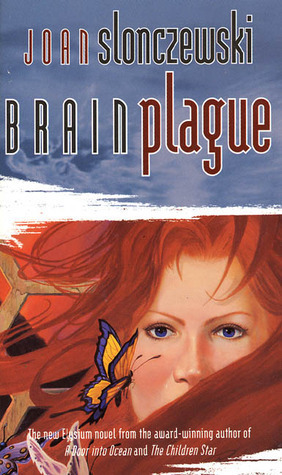
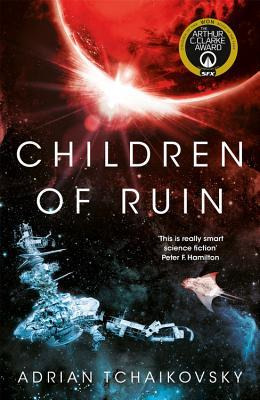
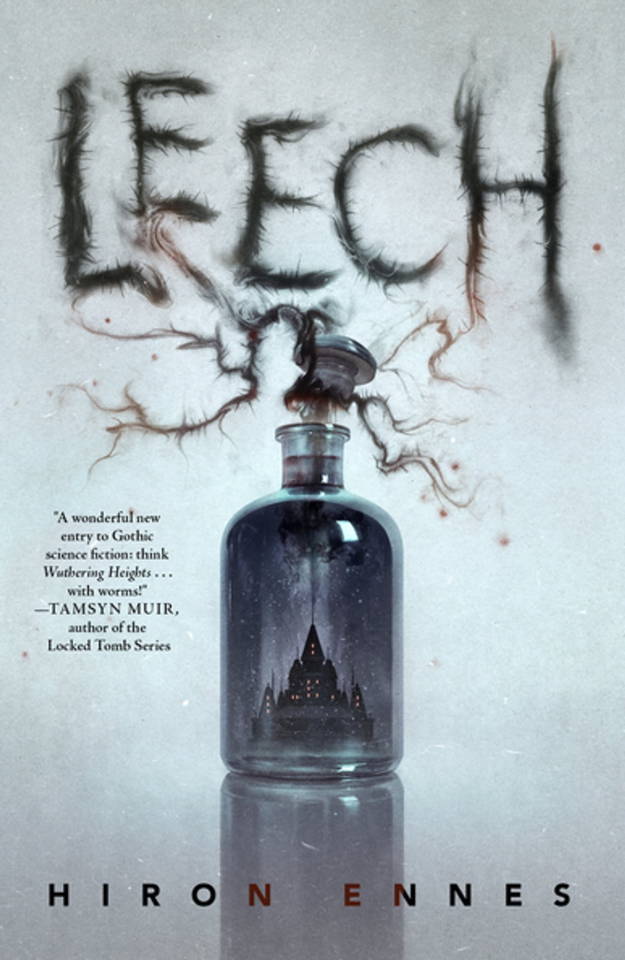
Brain Plague by Joan Slonczewski*
Chrys, a struggling artist, agrees to become a carrier for a sentient strain of microbes. With their help, Chrys breathes new life into her career and becomes a success. But every microbe society is different - some function as friends and brain enhancers to their carrier, while others become a literal brain plague, a living addiction taking over the life of their carrier. And like every society, the microbe community is in constant flux - including the one inside Chrys's head.
Children of Ruin (Children of Time series) by Adrian Tchaikovsky*
Sequel to Children of Time. Millenia and generation spanning scifi. After the collapse of the Earthen empire, a project to terraform various planets and use them to uplift other species to sentience in left unfinished. However, both species and planets continue evolving on their own, and when what remains of humanity flees the dying Earth millenia later, these planets might be their only hope of survival. But the uplifted species aren't the only intelligent life out there, and are far from the most dangerous as the survivors encounter something capable of terraforming the human body itself.
Leech by Hiron Ennes*
Unbeknownst to humanity, a sentient hive mind has taken over the entire medical profession to ensure the health of their host species. One of their doctors is sent off to an isolated location where they’re cut off from the rest of the hive mind, only to realize they’re faced with a rivaling parasitic entity. Leech hands you only just enough information to get by, and whether its historical fantasy, an alternate timeline, or futuristic post apocalypse is hard to determine. It’s spooky and a bit weird and wildly creative.
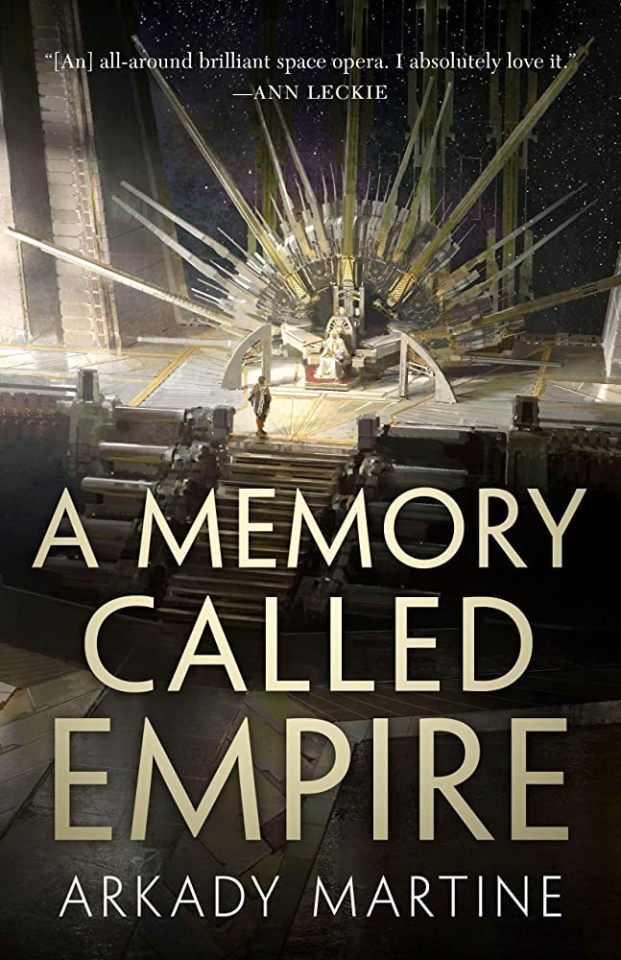
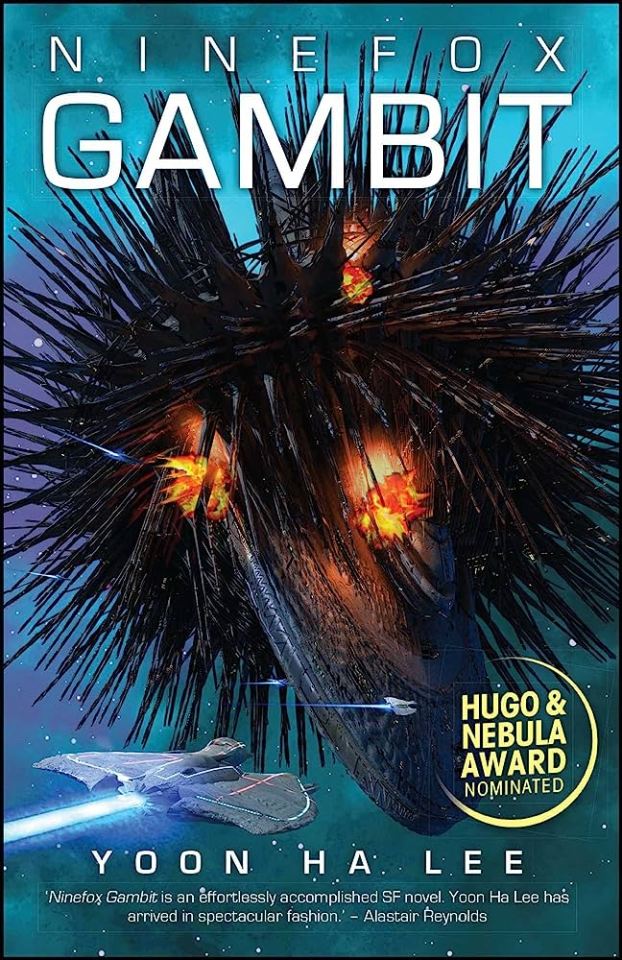
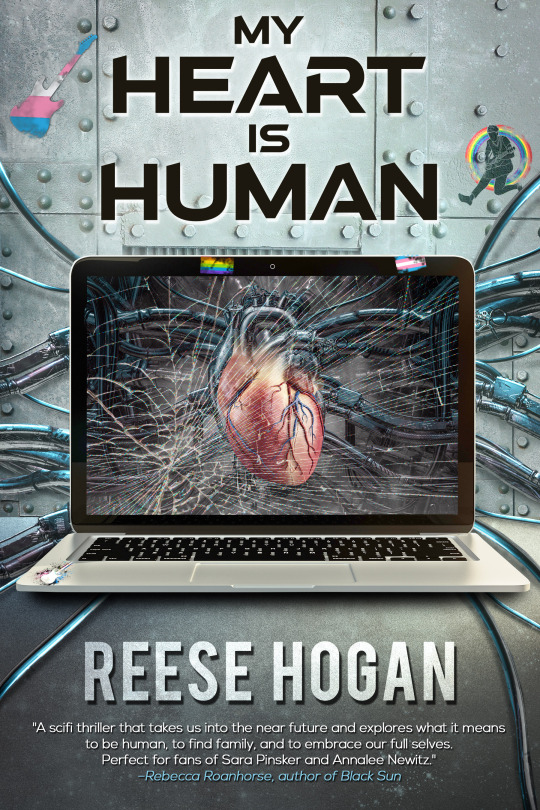
A Memory Called Empire (Texicalaan duology) by Arkady Martine
Mahit Dzmare is an ambassador sent to the center of the multi-system Teixcalaanli Empire, where she discovers that her predecessor has died. Trying to protect her home, a small independent mining station, from being taken over by the empire, Mahit struggles to find out the truth of her predecessor's death while carrying the voice of his ghost in her head, guiding her as best he can. Features a sapphic relationship but focuses more on world-building than romance.
Ninefox Gambit (Machineries of Empire trilogy) by Yoon Ha Lee*
Military space opera where belief and culture shape the laws of reality, causing all kinds of atrocities as empires do everything in their power to force as many people as possible to conform to their way of life to strengthen their technology and weapons. It’s also very queer, with gay, lesbian and trans major characters, albeit little to no romance. Disgraced Captain Kel Cheris is given a second chance by allying with the undead Commander Shous Jedao, who in life never lost a battle, but also went mad and massacred his own army. Now, Cheris must decide just how far she can trust him, with her forces as well as with her sense of self.
My Heart is Human by Reese Hogan
Nine years ago, all complex technology was made illegal. This complicates life for Joel, young transgender single father, as a bionic just uploaded itself into his brain without consent. Scared of losing his daughter, Joel tries to keep the bionic secret while using it to fix his life, but things quickly get more complicated as the bionic gains more and more control of his body. A bit simplistic in writing style but makes a lot of cool parallels of bodily autonomy to Joel’s experiences as a transman.
Bonus rec: if you like the general concept of struggling for physical control over one’s body with an AI, may I also suggest the (much grittier and gory) movie Upgrade.

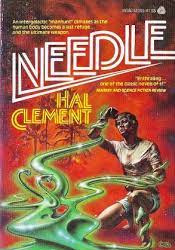
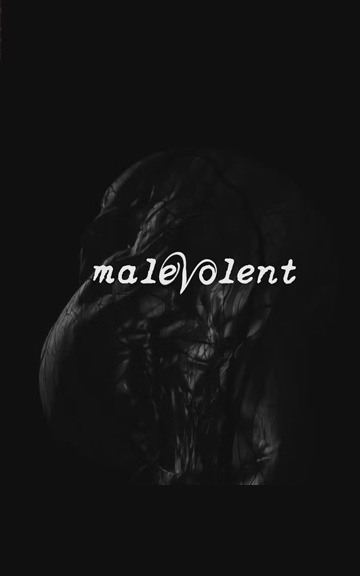
The Host by Stehpenie Meyer*
The Host follows Wanderer, an alien part of an invading force on Earth. Humans have been defeated and are being used as host bodies, but Wanderer's host Melanie is being difficult and refuses to fade away. Instead she fills Wanderer's mind with images of Jared, the man she loves and who's still in hiding. With Melanie's feelings bleeding into Wanderer's the two reluctantly ally to find and keep safe the man they both love. While The Host does feature Meyer's trademark romance - of which I'm not the biggest fan - the more interesting and arguably more central relationship is that between Wanderer and her human host.
Needle by Hal Clement
1950s classic. A small island in the pacific ocean and a fourteen-year-old boy have just become the center of an interstellar chase between an alien Hunter and the criminal he’s pursuing. Robert is a regular boy, but he has a very special passenger: an alien symbiont hiding inside his body. The alien became stranded on Earth as he pursued a criminal of his own species, and now they are both trapped on the same island, playing a game of cat and mouse as Robert and the Hunter struggle to find their prey before it finds them.
Malevolent by Harlan Guthrie*
Lovecraftian horror mystery. Private detective Arthur Lester wakes up in his office, his partner dead, memories fuzzy, vision gone, and the voice of a malevolent entity in his mind. Unable to see, Arthur is forced to rely on guidance from the entity as he attempts to solve the mystery of what it is and where it came from. Is this a book? No. But as someone who reads mostly audiobooks, the difference between a book and a fiction podcast is negligible, and also I love this story and its characters and want all of you to do so too.
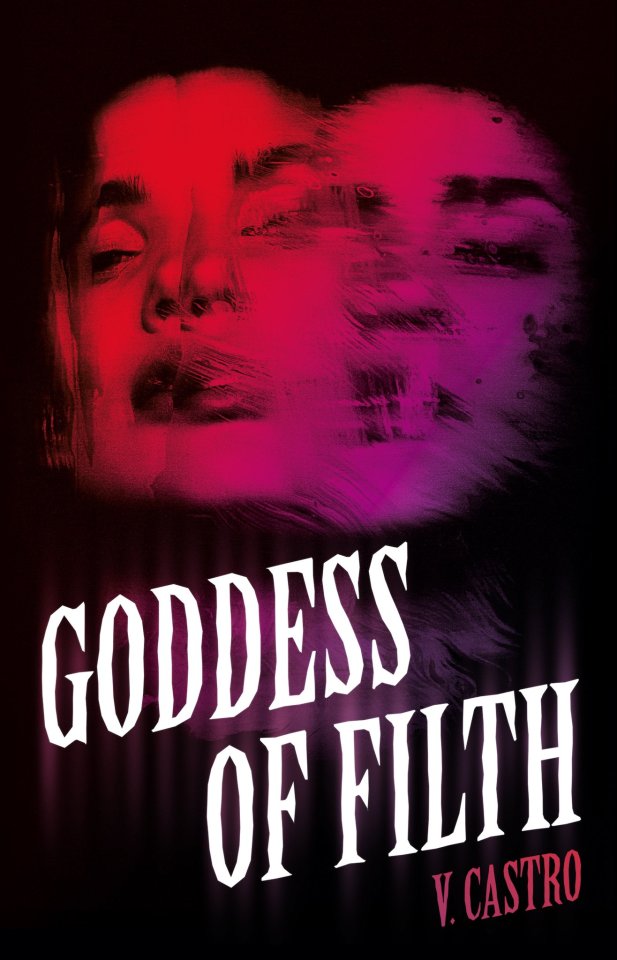
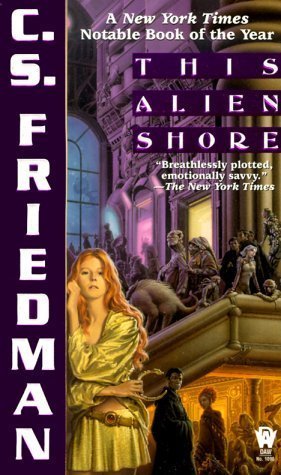
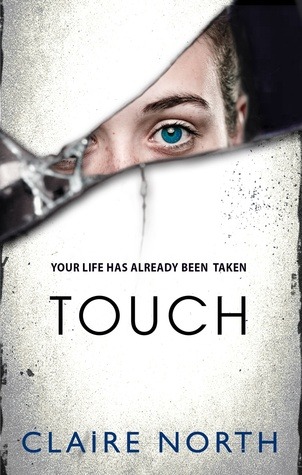
Goddess of Filth by V. Castro
Novella. What starts as a drunken seance between friends ends with one of them chanting in Nahuatl, the language of their Aztec ancestors. Following that night, the formerly shy Fernanda has changed. While her family calls for priests, claiming her possessed by a demon, Fernanda's friends believe what has taken up residence in her is something decidedly older. A quick read featuring female rage, desire and empowerment, this is a different twist on the typical possession story.
This Alien Shore by C.S. Friedman
Space opera in which humanity found a way to faster than light travel and began establishing colonies all over the galaxy, only to belatedly realize the method of FTL caused irreversible mutations and disabilities and leaving their nascent colonies to die. Much later, many of the colonies have survived and thrived, and one has found a new method of FTL travel, allowing an interconnected space society to grow. However, Earth is on the hunt for their method and is prepared to do anything to steal it. Trapped in the middle of all this and forced on the run is young Jamisia, who is little by little coming to realize that not only might she be the very solution Earth is after, she's also not alone in her own mind and body.
Touch by Claire North*
Kepler should have died long ago, beaten to death in an alley. Instead, a switch happened as Kepler leapt into and took control of the body of the killer. Since then, Kepler has lived in body after body, having gained the ability to inhabit anyone with a touch and stay for anything from a few minutes to an entire lifetime. Kepler cares much for the host bodies, and when one of them is brutally assassinated, Kepler must find the killer, avenge the host's death, and stop it from happening again. You want a fucked up main character with fucked up morals who still genuinely cares for people? Then boy do I have the book for you!
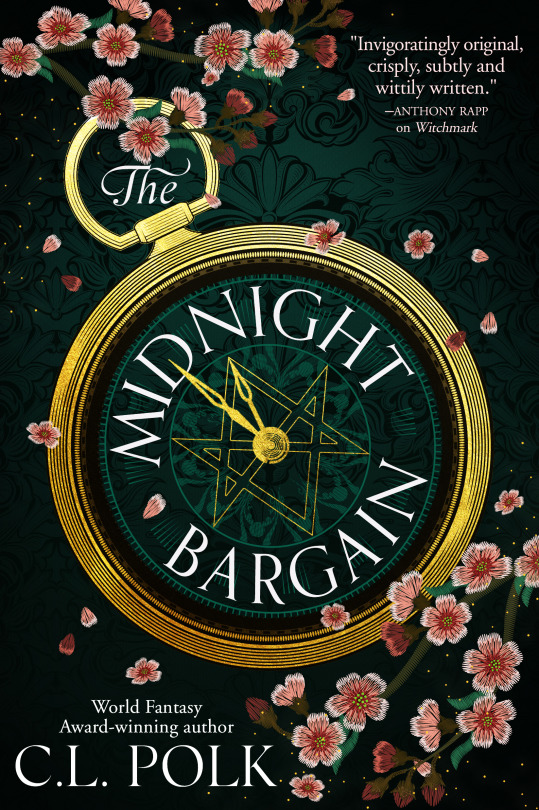
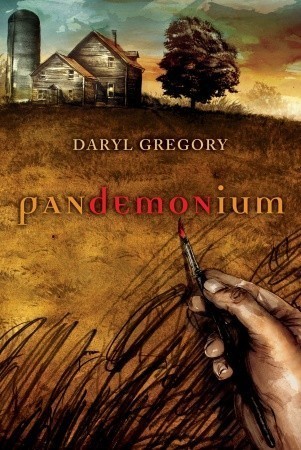
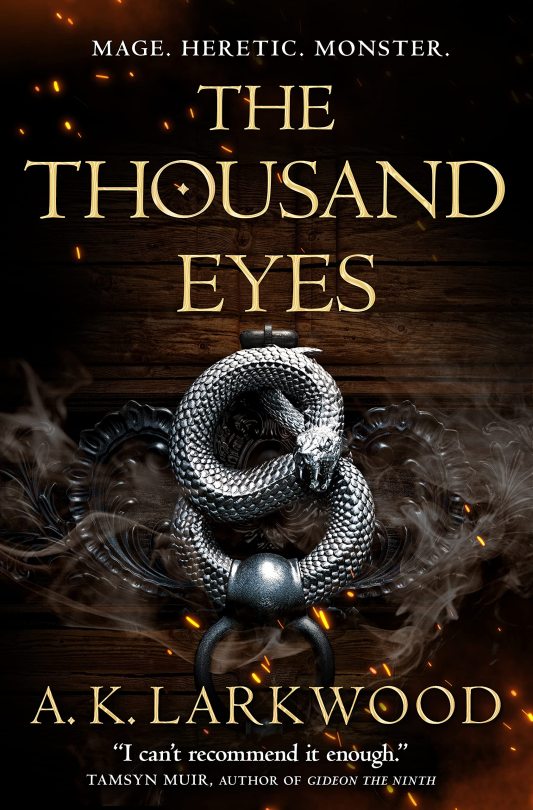
The Midnight Bargain by C.L. Polk
Fantasy romance. Beatrice Clayborn is a sorceress, but if her family gets its way she won't remain so for long. Married women are forbidden from practicing magic, and Beatrice's father is intent on marrying her off to save them from destitution. Beatrice has a different plan: become so powerful a sorceress that she can herself save her father's business and becomes too valuable to marry off. To achieve this, she strikes a bargain with a minor spirit of fortune. In return, the spirit demands to be present in Beatrice's body as she experiences her first kiss... a kiss with a man who might jeopardize all her plans.
Pandemonium by Daryl Gregory
Del Perce's world is almost indistinguishable from ours, the only difference being the presence of possessing entities that can strike with little to no warning. When he was young, Del was possessed by one of these demons, which was eventually exorcised. But now he’s experiencing a resurgence of symptoms, a voice in his head demanding to be freed. To save himself, Del races to find out the truth behind the possessions.
The Thousand Eyes (The Serpent Gates duology) by A.K. Larkwood*
Sequel to The Unspoken Name (please read that first, I promise this duology is very worth it). These books have a lot going on: portals, flying ships, orcs, elves, creepy snake gods, possessions, cults, immortal evil mages who traumatize teens as their hobby, gay and lesbian frenemies, the works. Csorwe, born and raised in a cult and meant as a sacrifice, escapes her intended death with a mage who becomes her mentor. But he has dangerous motives of his own, and Csorwe must decide where her loyalties lie.
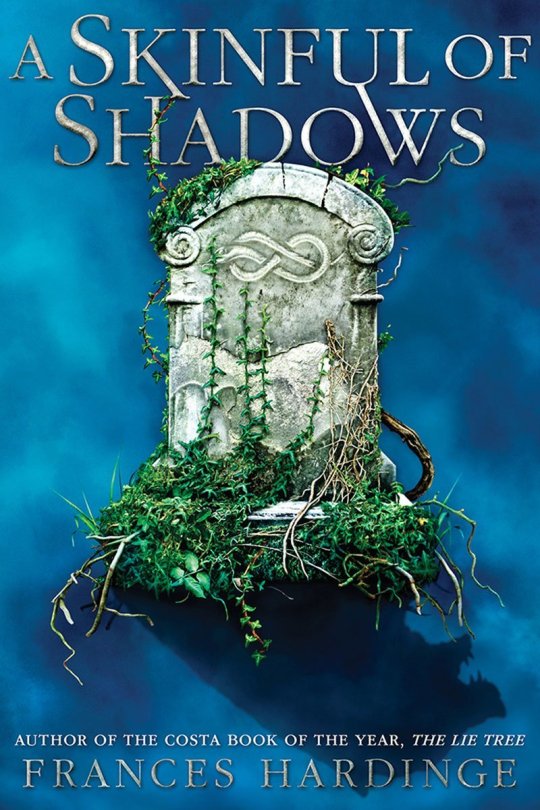
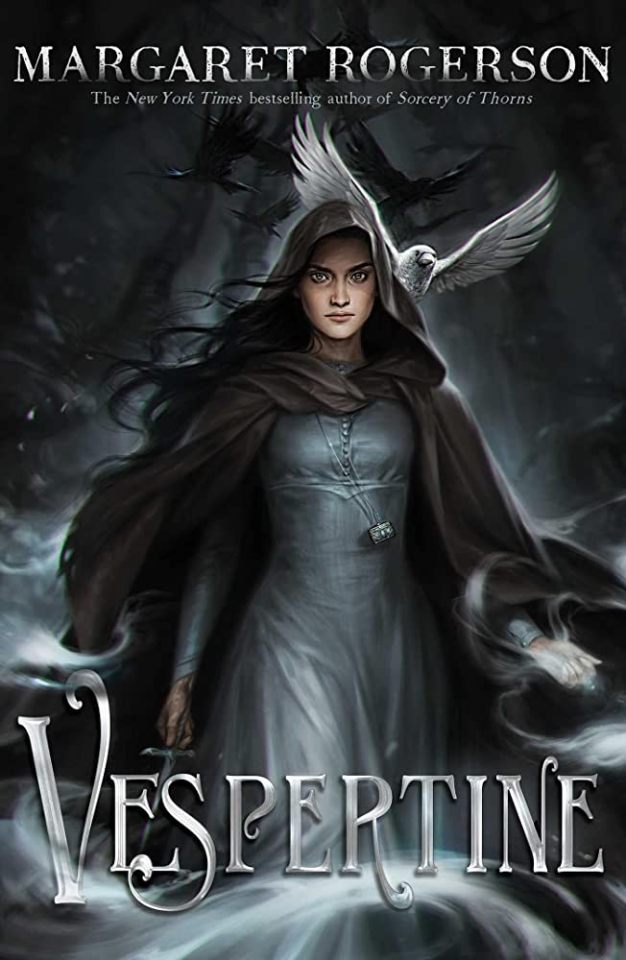
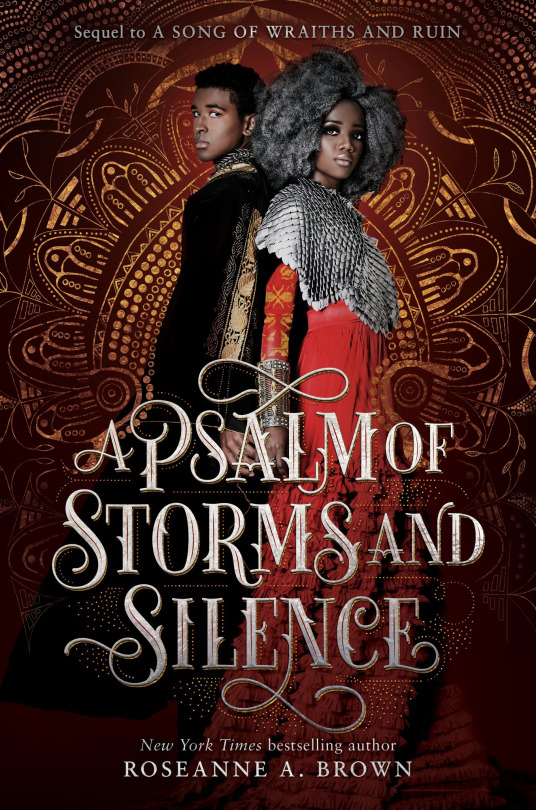
A Skinful of Shadows by Frances Hardinge
Young adult, historical. All her life, Makepeace's mother has been teaching her how to defend herself from the possession of ghosts, until one day her guard drops and a wild and fierce spirit slips in. When Makepeace's mother dies and she is sent to live with her father's family, this spirit might be her only defence. Because her family is harboring dark secrets, and they have plans for Makepeace... plans which do not care for her well-being. Unlike most other YA I've read in terms of vibes and plot, A Skinful of Shadows is a unique and intriguing read.
Vespertine by Margaret Rogerson*
Young adult fantasy. Artemisia prefers the dead to the living, and is training to become a Gray Sister, a nun who helps the souls of the deceased pass on to the afterlife rather than remain as dangerous spirits. To defend her convent, Artemisia accepts the help of a dangerous revenant, a powerful spirit which grants her great power but also could possess her the moment her guard is lowered. As evil threatens her homeland, Artemisia and the revenant must find a way to work together.
A Psalm of Storms and Silence by Roseanne A. Brown
Young adult fantasy. Sequel to A Song of Wraiths and Ruin. To save his family, Malik has made a deal with a dangerous spirit with equally dangerous demands - the death of the princess. Meanwhile, princess Karina is seeking her own power, meaning to resurrect her assassinated sister no matter what the prize. As their paths intertwine, the consequences of their pursuits keep getting higher, both for them, their nation, and the entire world.
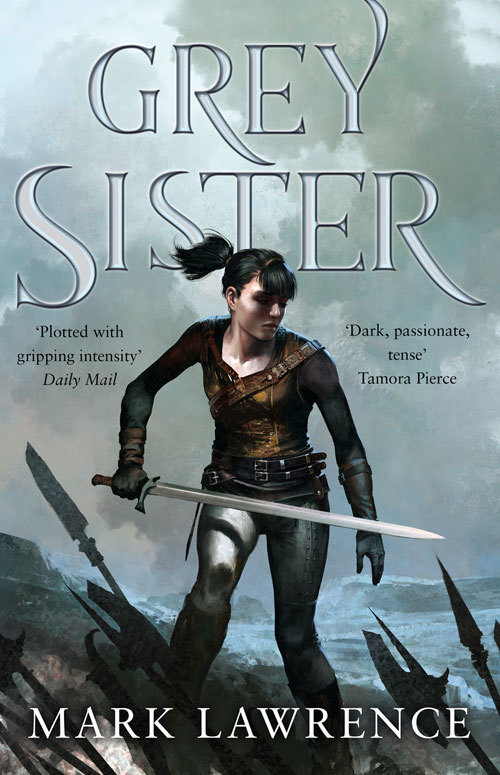
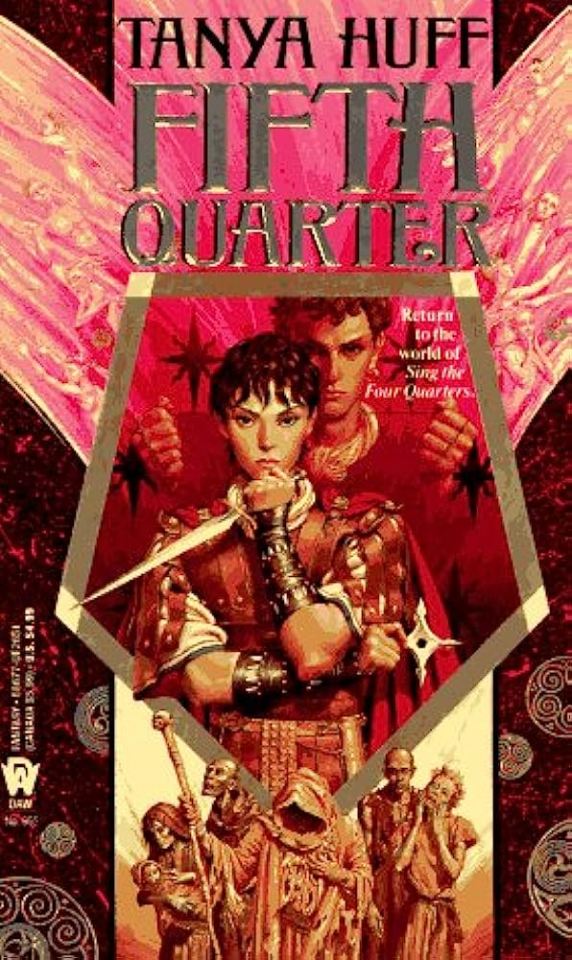
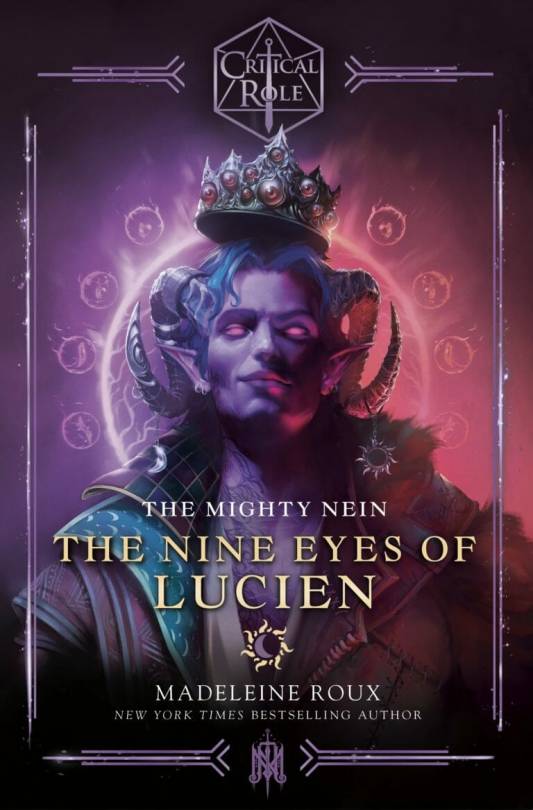
Grey Sister (Book of the Ancestor trilogy) by Mark Lawrence
Sequel to Red Sister. Fantasy with sci-fi flavor. Nona is being raised to become a killer at the Convent of Sweet Mercy. But dangerous classes aren’t Nona's only problem: her planet is slowly dying, and her own inner demons whisper in her mind. As the sun grows weaker and ice creeps ever closer, Nona and her allies race to save themselves from extinction.
Fifth Quarter (Quarters series) by Tanya Huff*
Sequel to Sing the Four Quarters. Fifth Quarter is only loosely connected to the first book in the series so you could read it as a standalone, however I still recommend starting with Sing the Four Quarters as it is very good. Bannon and Vree are siblings and highly skilled assassins, but they are put to the test when a failed assassination finds them sharing a body, their intended victim having stolen Bannon's. Now, they must choose between remaining loyal to their Empire, or helping their supposed victim find a new body to steal - and he doesn't want just any body, he wants the royal prince.
The Nein Eyes of Lucien by Madeline Roux*
Recommended with the caveat that you're unlikely to get the full experience unless you have also watched Critical Role Campaign 2 (which is quite the time investment, but very worth it). It follows the antagonist Lucien, first owner of the body we know as Mollymauk Tealeaf, both before Lucien lost his body and after he regains it in the ultimate struggle against Mollymauk's old friends, the Mighty Nein.
Bonus AKA I haven't read these yet but they seem really cool
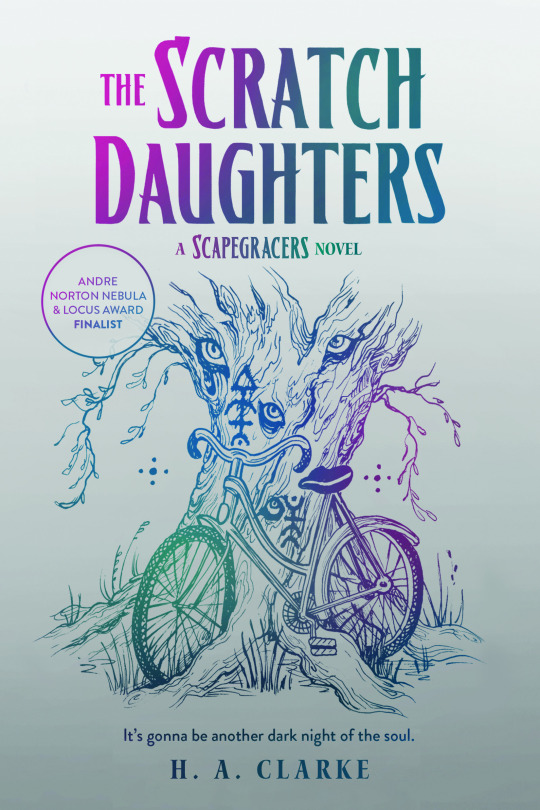
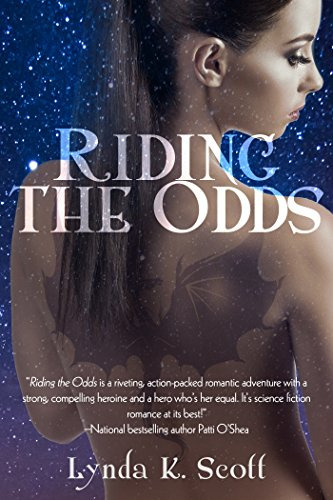
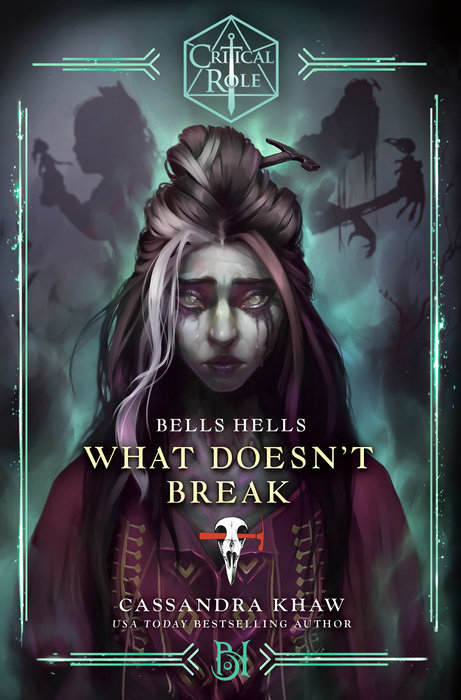
The Scratch Daughters (The Scapegracers trilogy) by H.A. Clarke
Sequel to The Scrapegracers. Sideways Pike used to be able to perform only party tricks, but in finding new friends and starting a coven, the four become powerful witches. But not everyone wants witches around. After having gotten her spectre stolen and losing her ability to perform magic, Sideways is forced to rely on Mr. Scratch, a book demon taking the place of her spectre to keep her alive. Now she must struggle to get her magic back before it’s too late.
Riding the Odds by Lynda K. Scott
Sci-fi romance. Tara Rowan is a spaceship captain with secrets - a past she wants to leave behind, and Zie, an organic symbiote which grants her greater strengths and reflexes. But when sexy Holy Knight Trace Munroe blackmails her in an attempt to rescue a missing princess, Tara's secrets are in danger of being revealed.
What Doesn't Break by Cassandra Khaw
Like The Nine Eyes of Lucien, you're unlikely to get the full experience of What Doesn't Break unless you're also a viewer of Critical Role. It follows the backstory of Laudna, undead sorceress and warlock with the ghostly presence of the necromancer who once murdered her keeping residence in her mind and tugging at her strings.
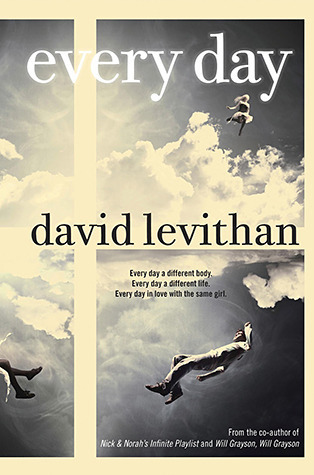
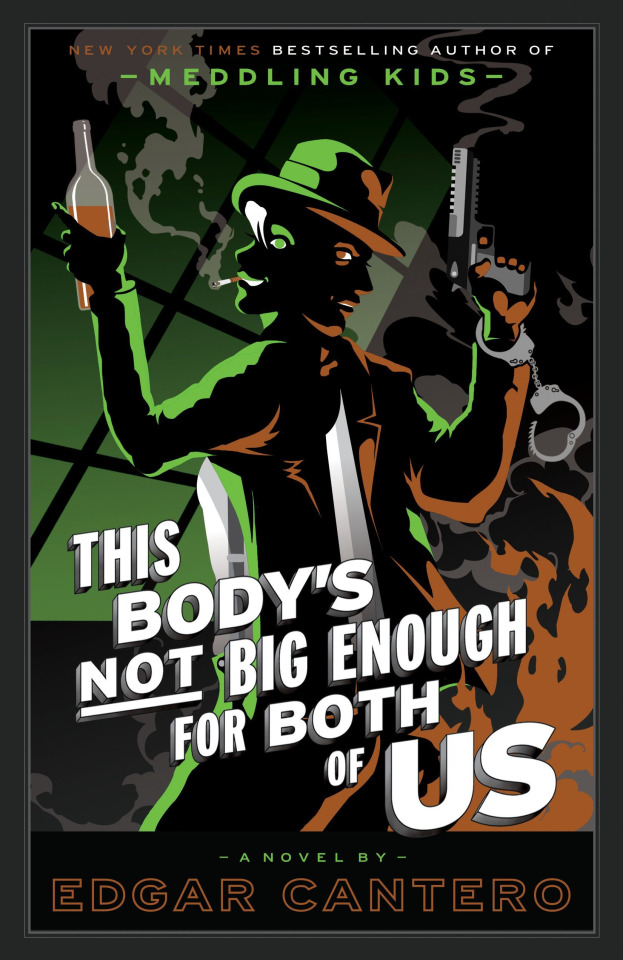
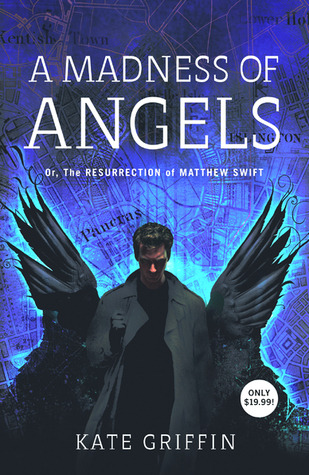
Every Day (Every Day trilogy) by David Levithan
Every day, A wakes up with a new body and a new life. A has rules on how to deal with this existence - don't get attached, don't get noticed, and don't interfere. But when A finds themself falling in love, all their established rules no longer apply. This one has also been adapted as a movie!
This Body's Not Big Enough for Both of Us by Edgar Cantero
A. and Z. Kimrean are twin siblings and private eyes - they also share the same body, calling themselves A.Z. When someone starts murdering the sons and heirs of a ruthless crime boss, it falls on A.Z. Kimrean to solve the case and find the killer before all out gang war breaks out.
A Madness of Angels (Matthew Swift series) by Kate Griffin
Two years ago, sorcerer Matthew Swift was killed. Today, he woke back up. And he isn't alone in his body... Now, he seeks vengeance not only against the one who killed him, but also against the one who brought him back.
Honorary mentions AKA these didn't really work for me but maybe you guys will like them: Bone Rider by J. Fally, The Lives of Tao by Wesley Chu, What's Left of Me by Kat Zhang, Hunter of Demons by Jordan L. Hawk, Odder Still by D.N. Bryn
#nella talks books#children of time#leech#a memory called empire#machineries of empire#my heart is human#the host#needle#malevolent podcast#goddess of filth#this alien shore#touch#the midnight bargain#brain plague#pandemonium#the unspoken name#a skinful of shadows#vespertine#a song of wraiths and ruin#red sister#fifth quarter#the nein eyes of lucien
62 notes
·
View notes
Text
Funny trope I keep seeing with hermits: their embarrassment over suddenly liking doing yard work like it isn’t the irl equivalent of terraforming and decorating in minecraft, which is their job
17 notes
·
View notes
Text
it's difficult to apply common fandom tropes to Gabv1el on account of how their meet cute went, but I keep thinking about how an Arranged Marriage AU would go:
Probably something along the lines of how, during the New Peace, Mankind guns for Heaven and its infinite resources rather than excavate in Hell, thus begins the long-belated Space Race. Heaven and its Council don't give a shit until they figure out how to reach and subsequently terraform the Fourth Sphere. War starts, but humanity has an edge in not only numbers but also technology, nevermind that there are human souls in the solar system Spheres that are sick of how the Council and higher angels are running things.
Fast-forward to the point where humanity starts making ground towards the edges of the Eighth Sphere and then the peace talks began. Part of that includes a marriage between mortal and divine. Gabriel, brightest of Heaven and one of the few higher angels who actually gives a shit about the mortal plight, is chosen as Heaven's representative. The Council is banking on Gabriel well outliving his mortal spouse and then having a massive political advantage via the prenuptial agreement, while Gabriel just wants to be a good husband for as long as his spouse is alive.
But instead of sending a super important leader figure or extremely wealthy mortal, Mankind digs up their deadliest machine from the Final War era, pretties them up, gives them the mission directive of ensuring they outlive their angelic husband, and then arming them to the metaphorical teeth.
And then I actually can't think of anything beyond Gabriel getting extremely offended upon first meeting, insults ensue throughout their shaky courtship until V1 kicks his ass, and then Gabe almost consummates their marriage prematurely as a result. Also the whole thing just being framed as a pulpy space opera because why the fuck not.
#Whenever I envision Heaven in the ULTRAKILL universe I keep landing on those floating cities from old 70's sci-fi art#except with a very boring palette of gold and ivory with blue accents rather than a whole spectrum of vibrant colors#Anywhosen Gabe still kills the Council but it's on the day of his wedding and he gets married covered in blood#V1 falls in love instantly#ADDENDUM: I meant to type Fifth Sphere not Fourth. Fourth is the sun and Fifth is Mars#also would it be too much if there were also mechs in this AU too?#Giant angel fighting mechs that can withstand the cold of space and adapt to the different conditions of the various Heavenly Spheres#this has been a post
22 notes
·
View notes
Text
Continuing off of my previous post, coming off of Part 1 one might expect Paul to be wary of Chani, only to inevitably be pulled in by her charm, the way he inevitably becomes a dictator despite wanting to avoid this. But then come Part 2 and he's actually fairly receptive to Chani and not scared; But it's Chani who is the one who starts off as initially wary of Paul, but inevitably she's won over by his charm, and that's when the danger really begins for her and the Fremen who at first might've seen the Lisan al-Gaib as a means to an end (their own wellbeing), only to be willing to die for him.
And I think you can consider this in regards to the brief discussion of Caladan in Part 2; Again, Part 1 is arguably from Paul's perspective, so we begin on Caladan before visiting the exotic Arrakis as outsiders. But if Part 2 is through the eyes of Chani, we begin on Arrakis, and very briefly yet meaningfully hear about Paul the exotic outsider's homeworld of Caladan, as described from a Fremen perspective; A planet where the most scarce yet valuable resource falls from the sky, constantly. There's so much of it that people don't know what to do with it, they can afford to literally play with (or in) it via swimming.
There's so much it becomes a nuisance they try to avoid, sustenance overwhelming to the point of poison; And is that not what happens to Arrakis? From what I've heard, Paul's terraforming results in rain coming to Arrakis, but the water is poisonous to the Sandworms and renders them nearly extinct, devastating Arrakis. Which of course is Frank Herbert's way of criticizing attempts by colonizers into making deserts 'green' while completely misunderstanding and/or ignoring how life already does work there.
But that gets me back to my point; Part 2 reverses the perspective, it's from Chani's eyes and in the end it's Paul who is the dangerous, usually racist trope of the exotic lover from an exotic world who ends up dooming our protagonist because you can't trust those savages!!! Something like that. Because despite what white people may think, it is not the brown people and their home to be afraid of; It's white people themselves being the threats, often in their attempts to 'save' brown people from their suffering and 'corrupt' ways. The white person IS the exotic one here, have you ever considered how the brown person may see it that way?
17 notes
·
View notes
Note
*pulls up a chair and sits down at your plant reader post* I am here for this and wanna hear more of your idea! If I had to pick favorites from the current post, it'd be the courtship and terrforming idea. Last Stampede ep def implies that independents have their own abilities, so a terrforming one would be cool as heck. Also, I just love alien courtship tropes.
Thank you!! I’m absolutely feral about exploring and developing fictional species, since it’s a ton of fun to throw ideas at the wall to see what makes sense—especially when it comes to romantic behaviors and such :3c Sci-fi is my preferred flavor of worldbuilding after all, so the idea of Stampede plants being explicitly non-human aliens offers up so much potential that I just can’t leave it be 👀
-
I prefer to think that plants, like humans, are fully capable of evolving to better suit their environment—perhaps even faster or more drastically than what most people would expect from them. This could easily account for the birth of Vash and Knives, as it would make sense to develop an appearance that allowed them to better blend in with humans; this could be interpreted from the perspective of prey trying to escape the attention of a predator, or perhaps even the opposite: a predator trying to hide among its unassuming prey.
Given the lacking records of non-independent plants becoming aggressive to the humans who rely upon them, most people tend to believe the former opinion, though there has never been any hard evidence either way. A majority of people—even prior to the great crash—don’t even believe plants to be sentient creatures.
Some people theorize that plants were not truly created, but instead originate from a parent alien species that humans had come into contact many generations prior to the SEEDs ships departing earth. Other people even think that plants aren’t from our dimension at all, which could explain why they are capable of creating all manner of organic material from basic forms of energy in a way that seems to defy the laws of physics. The truth has long been forgotten regardless, lost in dead memories or destroyed computers when the ships crashed upon Noman’s Land, and most people don’t have the time or energy to research such useless information.
Nonetheless, these details may point to plants trying to evolve past the tools they were originally created to be, perhaps if only to communicate with humans themselves; its hard to tell if the relationship is truly symbiotic or not, especially when plants themselves are so alien that few people have actually never seen one’s face before. Do they want to protect the people whom rely upon them for their livelihoods? Do they yearn for freedom from the boundaries of their glass enclosures? …Could they even survive the world beyond it?
This in the end leads me to an interesting concept; a non-independent plant metamorphosing into a form that appears to be human, but only on the surface. Like a chrysalis, it is simply to protect them from the harsh world beyond their cage—the only environment they were ever designed to thrive in. Imagine this plant having to learn how to be human, but also how to hide their abilities from those who might try to use them like a tool—perhaps this plant has inadvertently evolved into something incredibly powerful, capable of creating not only water and food, but terraforming swaths of the desert landscape.
Perhaps this plant is the next step in the natural progression of their species, which itself has somehow decided that the next step is not simply surviving on their new host planet, but transforming it into a truly habitable planet according to what very well may be written in their DNA.
And that is exactly what I picture the reader being; a plant that is somehow able to take a human form (much to their confusion and fear, its like suddenly being born into conciousness) and escape the confines of their glass bubble, all while trying to make sense of the powers they hold and desperately trying to find others like them in the hopes that they aren’t alone.
#trigun#trigun stampede#trigun x reader#writing#plant!reader#plant!reader headcanon#plant!reader ideas#trigun plants#plant headcanon#purposefully vague bc this could work for stampede or mangaverse plant designs#if vash and knives were part of the first generation of plants trying to take on a humanoid form#then the reader is the natural next step to that direction of self-evolution#smth smth smart talk smth#headcanon#sfw#sfw writing#sfw headcanon#worldbuilding#worldbuilding headcanon
158 notes
·
View notes
Photo

From time to time, the Inspector and his/her Associates land on
Earth-like planets, which have been terraformed to make them hospitable to human beings.
#Inspector Spacetime#Terraforming (trope)#Terraforming#the Inspector (character)#Associates#land on#Earth like planets#Frown (episode)#but not actual Earth#planets that have been terraformed#to make hospitable#to human life#to human beings
0 notes
Text
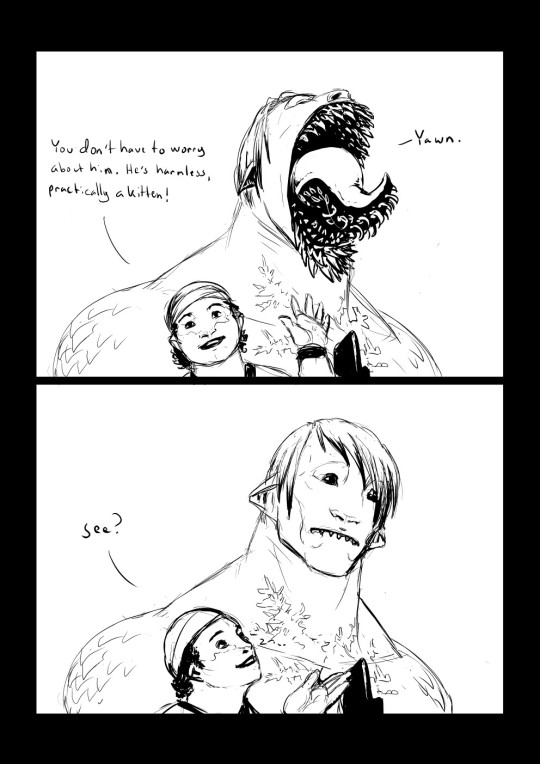
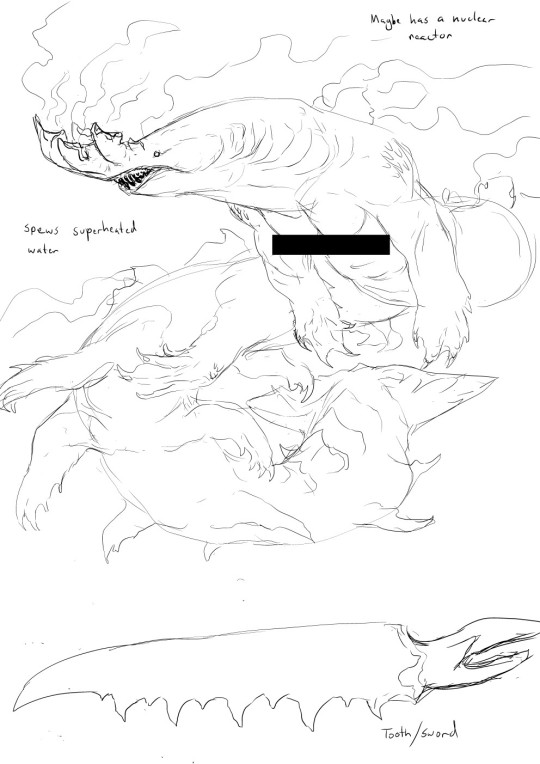
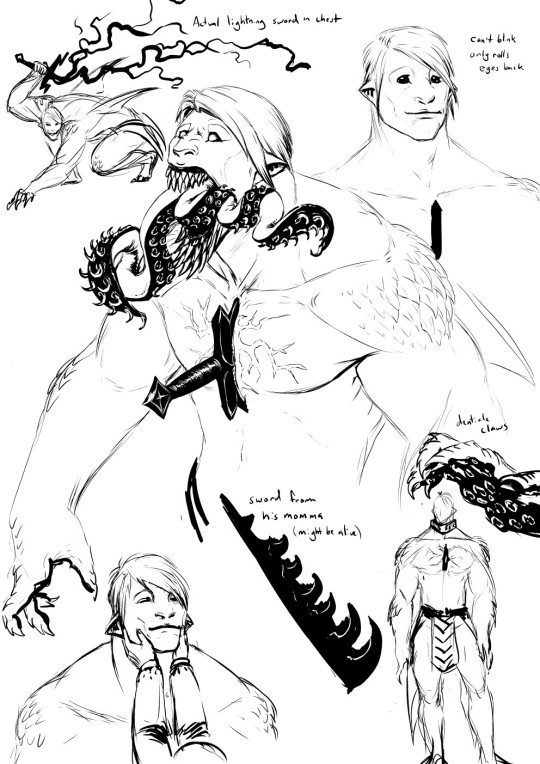
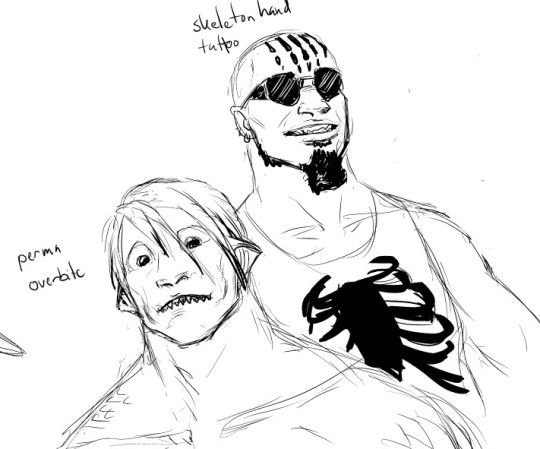
Just a bunch of sketches. Mostly me filching a bunch of stuff from that LoZ fan project into my own thing. I've been thinking about the semi-common myth of storm celestial deities versus depths dragons and mapping it onto two competing groups terraforming a planet.
By the way, I AM working on Aphelion, I just feel like posting the final pages of this comic will spoil stuff so I'm keeping them private until done.
Top image: So the people of this small fishing town and a horror monster might have accidentally adopted each other. He is actually like a kitty in that he will invert his face into a mess of needles and then look at you with big wet eyes.
Middle Left: Sharky's mother. She is shockingly manipulative and cunning for an 300 meter long nuclear sea monster. Both of his parents kind of suck! His father was a sort of Zeus/Thor/Susanoo figure and somehow Sharky happened (his mom planned it). Anyways he's not supposed to exist! That's a dragon with blood keys to the celestial weapons network! Whoopsie!
Middle Right: A bunch of concepts for Sharky. He can't really speak now because his mouth is like that, and since he used to be basically human, he's a little blitzed out on all the new senses he has and the fact that satellites are talking to him in a language he doesn't understand. Also, I know there's a trope of where ascended people leave humanity behind and stuff, but like, if I didn't need sleep and couldn't be harmed by anything conventional, I think I'd hold peanuts in my hands and have birds eat out of them for eight hours straight. And that's kind of what he does. People leave their kids with him when out fishing because he likes the cool rocks they give him and no other monster will appear with him around. Also he has his father's sword which is a flaw in reality that always has to be at an absurdly high voltage. It's effectively a lightning bolt that never stops. He effectively acts as its sheathe because his armored skin is a strong enough shield.
Bottom: More Sharky and a character from TankEater. Potentially Dex's most dangerous foe in the first comic and thematically their opposite, a short king with weaponized disassociation that builds up a mental version of you that they use to predict your actions (remember, Dex isn't exactly a good guy at the beginning).
56 notes
·
View notes
Text

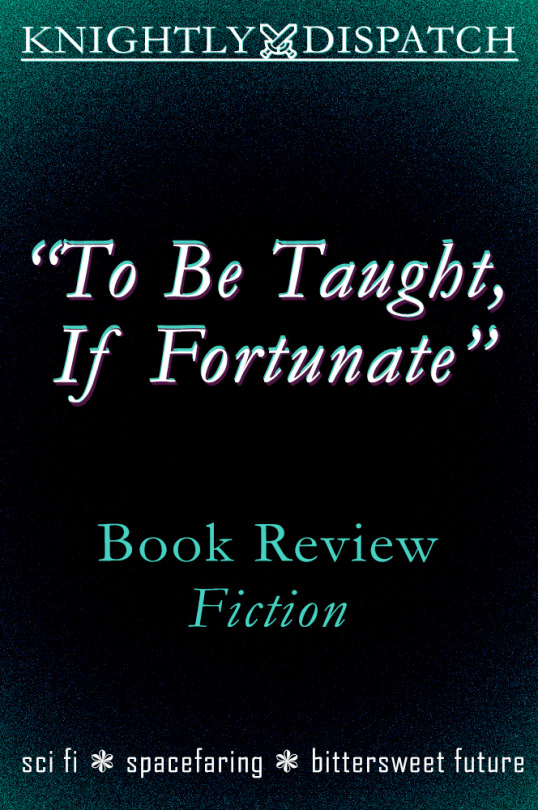
Rating: 4/5
A very good book, falling just shy of greatness.
Becky Chambers comes highly recommended to me on all fronts, and I will definitely pass on that recommendation, at least for this book. To Be Taught is a tender-hearted and fresh look at the concept of exoplanet exploration, forsaking the highly colonialist concept of terraforming in favour of "somaforming": the manipulation of astronauts' physiologies to suit the planets they explore, rather than bending alien nature to human will.
While the book features some plot and narrative elements that always appeal to me, such as a small cast of characters stuck in a confined space for extended periods of time, and speculative taxonomy, the book's main appeal to me was this unique take on Change in the face of the New.
Full Review [spoilers]:
I did quite enjoy the small cast locked in their little pod lightyears from home - one of the most lasting images from the book to me is the sheer misery of the crew when they're stuck, surrounded by shrieking slug-like alien animals on a wet and rainy planet for months on end, all slowly breaking down in unique ways.
But more importantly to me, To Be Taught addresses the all-too-common colonialist trope of terraforming, explicitly tackling its cruel implications and - crucially - imagining an alternative. Terraforming is the logical conclusion of colonialism, and its inescapability in fiction drives real world ecological disasters such as the destruction of deserts. Somaforming is, in my opinion, the ideal framework of approaching any kind of journey into the unknown - from personal trips to seeking new habitats for mankind. One must always expect to change and be changed. One must never presume to force or shape the change of the other. Change upon the other will occur, but we must be willing for it to emerge naturally, and potentially at pains to ourselves.
The book could have used more depictions of this change for the exoplanets - one of the more memorable scenes is when a crewmember is forced to kill an alien animal for the safety of both the mission and the broader ecosystem, and it deeply affects him, but I wish the book delved into more of how their mere presence will alter these worlds forever.
The aforementioned crewmember, Chikondi, is the site of the most engaging of the character work and his bond with the narrator, Ariadne, is both tender and narratively satisfying. His reaching out to her with the same rhetorical techniques she used to try and breach his depression forms one of the most impactful scenes of the book, where Ariadne is coaxed back from the brink of unfeeling suicide with the reminder of the inextricable links between herself and others.
This book is very focused on the reciprocal nature of the relationship between the astronauts and the people they've left behind. The politics of the book are occasionally tenuous (with the only named country of the 23rd century seemingly a seceded Cascadia), and the depiction of the crowdfunded stateless space program often verges on the breathless and gushing. It does fit the character of the narrator, but I would have appreciated more subtextual question-raising of the nature of this organisation.
Nonetheless, the emotional bond between the astronauts and Earth carries the entirety of the story, and saves its ending from seeming non-committal or weak. The ambiguity of whether they will return or continue onwards could seem like the failure of the author to make a call one way or the other in a lesser book, but here it's the logical conclusion of the values the characters all hold, and the system that has brought them this far at all. Despite my hesitancy at the politics of the book (though I do concede the light touch is preferable to a screed, which novellas are always prone to becoming due to their short length), the ultimate message of unity, collaborative decision-making, and foregrounding the well-being of mankind over exploration for exploration's sake is one I can get behind.
Prose was unremarkable in a good way. Ocasionally breathless, but never to an immersion breaking extent (indeed, while a little passé, it suits the narrator). No lines jumped out to me as spectacular or anything, but genuinely interesting vistas of exoplanets were depicted in engaging and evoking ways, and the most emotional moments weren't bogged down with overt sentimentality, allowing the actual impact of the scenes to shine through.
It's a good book, and one that has me eager to read the rest of her stuff.
Recommended for: Star Trek fans, anyone looking to get into sci-fi but are put off by long ass books, eveyone sick of terraforming, readers disappointed by The Deep Sky, people who still have faith in kickstarter, and evolutionary biologists.
#to be taught if fortunate#becky chambers#sci fi#science fiction#book review#knightly dispatch#book rec
12 notes
·
View notes
Text
Submitted via Google Form:
Idea: Building a colony on a planet with very little in the way of water. So they siphon a portion of water from their home planet and bring it there via wormhole. Details: Siphoning off a potion of water means sea levels dropped 200m world wide on a planet that's 80% water now has 75%. The colony planet has no ocean but multiple lakes and rivers so they expanded them and created a whole bunch of new lakes and seas. The new planet has little in the way of native life - so marine life would pretty much be the same from home apart from a few areas they have not touched and mingled with the stuff from home. Questions: I might need a bit of help checking on the numbers? Also, what changes would happen to all the marine life and ecosystems as well as how are things going to work on the colony? Something I may be overlooking?
Tex: If they’re bringing water from Planet A to Planet B, where are they bringing the water from? You mention sea levels, so I’m going to make the assumption that you intend to have Planet B siphon seawater from Planet A. Is it the sum total of the seawater - inclusive of marine life, salinity, and trace minerals and metals - being ported over, or only water purified from the seawater, devoid of any other characteristics?
Is this also a one-to-one transfer ratio? How does the wormhole know when to stop transferring and what to transfer to the other end?
Wootzel: Your question of “What changes would happen to all the marine life and ecosystems as well as how are things going to work on the colony?” is a bit too broad-yet-detailed for us to be able to help you with it. One could write a novel-length speculative wiki on what kinds of environments might form in a situation like this, but a huge amount of it would be guesswork. The result might not fit what kind of story you’re trying to tell, and would probably be way more detailed than you would ever need. What I’m getting at is that we have no idea what you need from your world, what is or isn’t relevant, and what hypotheticals interest you from this kind of scenario.
What I can say is that there’s no realistic way they’re going to essentially copy+paste the marine life (or any ecosystem) from their home planet to this new one and have it settle into a similar, stable pattern. For every organism that can exist at a variety of pressure or gravity levels, there’s probably another that would die immediately, and a few might find an advantage and take over. SOME factor is going to hugely disrupt the biome, but it’s probably a bunch of factors all at once.
Some compound found commonly in the rock that’s not on the home planet dissolved into the water? Lots of microorganisms just keeled over, and a few more adapted to eat that compound.
Light level is different? Similar effect.
No ocean currents? Lots of stuff just went extinct within a generation.
The above extinctions created vacuums in the ecosystem, which a few thriving species took advantage of, causing population explosions, but they outcompeted something else.
That something else’s specialist predator just went extinct because its food source is gone.
Here’s a past answer that’s tangentially related to what you’re asking, in that it goes into what would be needed for a bunch of species to go from a limited population to a thriving one, and some environmental and ecosystem factors that could make a population able to bounce back or be doomed.
If you’re interested in making a big, detailed worldbuilding project about this, and you want to go the semi-realistic-speculative-biology route, you’ve got a LOT of research ahead of you to learn about how environments and ecosystems work. If you just need a setting for a story, you can get away with picking whatever elements you want available, looking at them together to make sure they seem half-plausible, and refusing to worry too much about the how and why of it all. Terraforming is a common trope in sci-fi, so if you want to just say that this planet has bodies of water resembling smallish versions of the home planet’s oceans and ignore that being implausible, you can just do that.
Addy: I don't have much to add here, so I'm just going to throw some links at ya
13 notes
·
View notes
Text
Partners in Time is a criminally underrated Mario & Luigi game. The game isn't perfect, I think if there was just no time travel and the game was in the normal mushroom kingdom and not the past somehow nothing would change. That concept adds nothing and really just confuses things. However what I wanna talk about is what really fascinates me about the game, it's antagonists the Shoobs. The Shroobs are an INCREDIBLY intimidating and interesting antagonist, they're a dark reflection trope but also an EXTREME version of Toads. Everything they do is hyper violent and taken to 11, nothing they do is simple, it's always crazy. Not to mention they're not just invaders, they're colonists! They're actively changing the mushroom kingdom to suit them. From the Vim factory using the native toads as saucer fuel to a giant robot trying to change all Yoshi's into Yoobs, they're constantly and rapidly terraforming the land. Not to mention how they're always turning people and things into inanimate poison mushrooms, the Shoobs are scary and very effective at what they do. The plot twist of the Elder Princess Shroob is also very well seeded throughout the adventure and she's the perfect true dark mirror to Peach. Huge, strong, merciless, we don't learn much about her but her boss fight is perfect in telling us how she views her subjects. Through the fight a ton of her attacks involve using and destroying Shoob flying saucers simply to attack with their corpses, her people are nothing but tools to her. This all combines to a fantastic antagonistic force that in my opinion isn't matched in another mario rpg.
10 notes
·
View notes
Text
The Culmination - Fallout: New Vegas (The Fallout Series as stories, part 3)
First I told you about the original games, the classic 2D games from the 1990s that built the world and the story. Then I talked about the mixed efforts by Bethesda to convert this into a 3D spectacle. I admit I'm biased, but I'm biased because I prefer certain experiences over others. And this leads you to the 3D title not developed by Bethesday, set between FO3 and FO4, chronologically, which is of course "Fallout: New Vegas".
FO:NV was developed involving some of the people that made the original Fallout franchise under a license of Bethesda which now owned the IP. There's quite a few people who consider FO:NV the genius piece of the series, and IMO that's because it prioritizes story, themes, and consistency over other design concerns. The game has the feel of people working on it that understood the world and knew how to bring it alive.
But it has something else going for it: It dared being something new. That's something FO3 never really dared, coloring within well-established lines. And something that FO4 dabbled with with mixed success. FO:NV has flaws, but what it achieved outweighed them in my book.
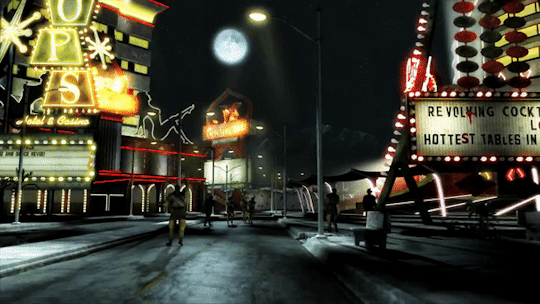
Two different kinds of story
FO1 had a vault dweller explore this dangerous world for the first time, thwart a major threat, and leave a legacy. FO2 varied this backstory somewhat, but to be fair, is a rehash, except that both managed to introduce different-seeming threats. Both have you set out to find a MacGuffin in a race against time (a water chip, a terraforming kit), only to battle major evils. So you could say FO2 was, also out of economic necessity, almost a remake of FO1.
And yet. FO2 built an evolving world on top of FO1. That is its redeeming quality. No matter what else new it introduced, even leaving its strong lore aside, this is what makes FO2 still worthwhile, you get to play the world resulting from the one you left behind in the last game.
I personally think that one defining moment of any worldbuilding or franchise happens when somebody tries to tell a major story within it that is not like the previous ones. This happened for Star Wars with "Rogue One" because this was at heart a war movie, using the story tropes of bravery and sacrifice, not a movie about Jedi knights and space pilots saving the world single-handedly. "Andor" takes this even farther, becoming a multi-layered story about politics, living under fascism, and the realities of a resistance movement. (And ultimately accomplishing what "Episode II - Attack of the Clones" wanted to do with all those scenes of people sitting around and talking.)
FO:NV is this for the Fallout Universe. It's an example of both evolving what you have and branching out. And the branching out starts with the protagonist: You already are a wasteland dweller, but you lost your memories when somebody trapped you on a mission, shot you in the head, and put you in a shallow grave.

So, part of this story is finding revenge, not saving anybody. You're your own person, you set out for your own reasons, and probably one of your main goals is to untangle what happened to you and do something about it.
As you wander out into the Mojave Desert, you find it suspended in the eye of a storm. From the west, the New California Republic, with their flimsy hold on the region which they want to incorporate. From the east, the ferocious slavers of Caesar's Legion, styling themselves like Romans, forcing others into joining, submission, or death. At the center, the prize: New Vegas and the still functioning Hoover Dam.
So, while your personal story leads into the center of it all, FO:NV is at its core the story of this conflict between various parties, and it's up to you to decide its outcome, bending and shaping the world to your will where you can. It's about influencing the world and making it your own.
In comparison, in FO1 and FO2 you're defined by the needs of the communities you come from. (And you fail the game if you ignore them.) In FO3 and FO4, you're defined by your family, following your father or trying to regain your son. In FO:NV you start with a rather clean slate, and you write a story of your own choices on it wherever you go. You're not free of limitations, but you're a Wild Card in a volatile mix of elements.
Why I think it's different
FO1 and FO2 give you a MacGuffin hunt, then you stumble across the big bad. FO3 is not really a great story - follow your father, take over his project, finish it. FO4 came after, so let's delay looking at it.
FO:NV never hides what it is about. You are drawn right away in the maelstrom of the conflict that decides the fate of the region. Your role is more active than ever, and you can pick and chose. Yes, there is a twist in the middle, but it only expands your options. FO:NV is from beginning to end about its central conflict, about picking sides, recruiting allies, and bringing things to a conclusion. No more saving the world altogether. People are here to stay, but what societies they leave in their wake - that you help form.
FO:NV is a clockwork of interacting pieces, a story told from parts, and most anything you encounter is the consequence of your actions or the consequence of something else that happened right before you came on the scene. The forces that form this world are constantly on display, and you try to figure them out and shape them.
Whether you push for the New California Republic with its values but also its disregard for the frontier people (when push comes to shove), or for Caesar's murderous slaver legion, or whether you push for an independent Nevada, or hand it over to a Howard Hughes caricature from the past, it's up to you.
This may look similar to what FO4 does, where it makes you side with one faction and destroy the other two. But neither is it woven through everything the same way. Nor are these choices earned in so many places, so many small changes to be made, allies to be won, etc. In FO:NV, you earn your choices and your degree of difficulty through engaging with the story, through and through.
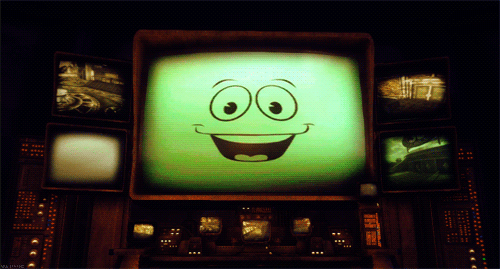
In comparison, if you decide in FO4, you basically get some missions to blow up the HQs/reprogram the mainframe of the other two factions. There's no equivalent of the unity of purpose of FO:NV, and likely you were wandering the Boston Wasteland for a long time without touching upon the main quests at all. The main quest seems at times just tacked on, and the main story can be completed rather quickly if you want or you can leave it aside.
At best, FO4 copied some of the approach of FO:NV. But in the end, it never cared to be "all about that." I spent easily a hundred hours in FO4 just doing my thing without ever engaging with moving forward in the main storyline. This is frankly impossible in FO:NV, for good and bad. As your make your likely counter-clockwise tour around the map in its clockwork world, you will have to make decisions and pick your poison, over and over, as the looming war affects near-everywhere and near-everybody.
Or to put it another way round: 3 out of the 4 main factions of FO4 are powerful but small. FO:NV main factions are in principle strong in numbers and can decide the fate of a lot of humanity between them. They don't need subterfuge for it. They've already grown to formidable war machines. They just can't do everything and be everywhere.
This naturally evolves out of the story of FO1 and FO2 and completes it. Mankind is back in the saddle. A dirty, irradiated saddle with squabbling over limited resources you can't replace, but the trajectory goes from villages to cities to states/nations. And FO:NV feels like that. Were it not for the two power blocs coming to head in the region, either of them would have likely already done their thing. They're no longer fighting "gotcha!" threats popping out of nowhere, these are people trying to carve a legacy - people that stem from a new course of history. History hasn't ended. It marches ever forward.
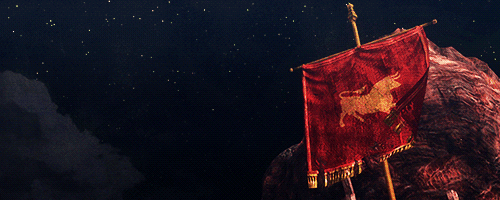
This isn't a story that ends by a Hail Mary of simply lighting a nuclear bomb under somebody's ass. This ends in battle.
Differently told, too
FO3 and FO:NV at times feature the same assets. But when FO:NV reuses something, it reuses it in context, and keeps coherency. FO3, FO4, and FO76 were set on the East Coast so that the game designers don't have to bother with the legacy of the original games if they don't want to. That's why their reuse can be so unconvincing.
The Mojave has is an empty waste often with wide views. You meet natural hazards, and most anything you encounter has cause or reason, even if it is habitat. Major monsters don't just spawn near settlements. Supermutants, in spite of their major "cool" factor, are mostly present in a few key locations where they make sense. There are quite a few raider factions, but they have their turfs. Conflict between groups centers on settlements and usually has a cause in recent events, partially driven by larger events.
For example, at the edge of the SW quadrant of the map, the NCR ran a prison but the convicts revolted, got their hands on explosives from a nearby quarry they worked in, and became the "Powder Gangers". Their influence is felt throughout the SW and SE corners of the map, as the NCR struggles to muster enough troops to deal with this distraction. In the town of Primm, a part of the gang tried to take over town but only managed to take the key asset, the big hotel. In Nipton, they were part of the customer base of this open-for-all town before the Legion massacred or enslaved the residents.
In comparison, FO3 and FO4 feel very different. FO3 feels absolutely overrun with Supermutants, especially the city itself. FO4 is abundant with endless raider gangs and strongholds, and if you enter the city it's raiders, Supermutants, raiders, Supermutants. Both of which also raid your settlements, until you're left with the feeling that in the Boston area the population of these two outnumber the "settlers" by 20 to 1, with no rhyme nor reason. (Plus, you can't take over any real cool place because why settle in a defensible location, huh?)
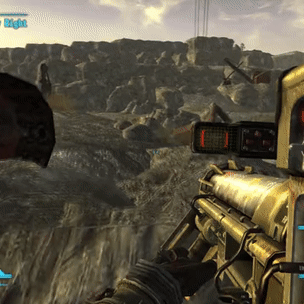
Even the enemies are not allowed to kill the vibe or story of FO:NV. There's a push and pull between civilization and monsters, and the latter are most likely to be encountered where civilization doesn't reach or has been pushed out by clashes between the factions weakening all of them. Monsters are in abandoned places. FO:NV does without a major urban wasteland, with New Vegas being quite intact. Settlements make sense and are generally able to provide for themselves, and often subject to the major disruptions occurring due to the moves of the various factions.
This is a continuation of the original series. FO1 had this "points of light" feeling of isolated struggling communities. In FO2 already the tendency had more moved towards there being a frontier, because the NCR and for example Vault City themselves weren't really struggling, they were at liberty to make a few arrogant choices in pursuit of what they wanted. People start coordinated efforts like mining again, or waste time on amusements and crime in New Reno. While there's hardly plenty, there's enough to start skimming the cream off the top.
FO:NV sees you come to a frontier that's basically on the verge of becoming a Territory, where some sense of order exists, and where originally you could travel along the major highways. There is a general Western vibe, a feeling of people able to stand on their own and having some pride at times. They're thinking about making choices between greater security (like siding with the NCR) or making their own way of life.
This Western vibe extends into all corners of the map. There's the frontier wilderness in between, but unless a big bad comes to town, there's a sense of life going forward without too much hardship. Communities were able to carve out their own livelihood just well enough. They're not sitting around in teeny-tiny parcels of lands that you wall up and guard constantly like in FO4.
Building on this environmental vibe, FO:NV tries to tell stories that mix fortune seeking, opportunity, regret, and a lot of themes from Westerns. While the revenge story has a Las Vegas gangster vibe to it (after all you were buried in a shallow grave in the desert), it's also not out of place in a good Western with elements of betrayal and rivaling gangs and a conspiracy to be uncovered.
Or, to put it another way: FO3 is about the past as it recycles the past. It pits Brotherhood of Steel versus the Enclave. FO4 is also tending towards being about the past, as all three major endgame factions are either directly tied to the synth technology (and hence the surviving Institute), or again, the Brotherhood. And you might likely end up blowing up two major technological marvels before ending the game. (Well done you.)
FO:NV is a mix of old and new, with one major faction (Mr House and/or the Yes Men) relying on Old World technology, but that's the Wild Card. Most of the story is about the clash of new civilizations.
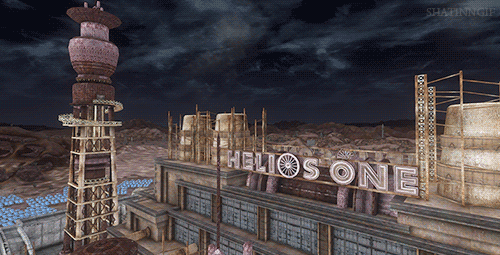
Beyond the Clockwork
One thing you could fault FO:NV is how it feels like nigh-everything is about its central themes. There's a certain freedom of just exploring the map in FO4 and enjoying some of its randomness and chaos. Yes, the people of the Boston area have been shit at doing most anything. But this gives you at times more of a post-apocalyptic chaos feel than FO:NV does. FO4's thrills may be cheap thrills, but they are thrills. When it comes to the feel of an open world game, FO4 might have more of that than FO:NV, which feels more like a story game at times. FO4 locations may often have little story behind them, but they were designed as game challenges. I still remember fondly going from roof to roof in a town overrun by ghouls, feeling all clever and smug about it when that still was exactly what the level designers planned, LOL.
You can't escape the story in FO:NV. In FO4 I never really bothered much with it to begin with. Exploration play was a lot of fun, and the ability the put your own settlements and scavenging opportunities make the game really geared toward it. (Leave it to Bethesda, though, to riddle this part of the game still with bugs and bad design for such a key element. Try building a settlement in vanilla without mods. It's a pain.)
To be fair, bugs were a major issue for FO:NV, especially upon release, marring its general reception. But given that so many interacting elements exist within FO:NV that you want to take advantage of, the bugs in the original game were especially jarring to the player.
I think in general FO:NV is a step up from FO3 in terms of presentation because it feels better to me. More is happening, and the world feels more real and less, well, pukey. Opening it these days still feels dated, the gunplay limited compared to FO4, and often empty and less alive. We've been spoiled by games like Witcher 3 and much more since then, after all. Compared to what is possible today, locations like New Vegas seem a bit empty and forlorn. There's no question, FO:NV as is seems dated.
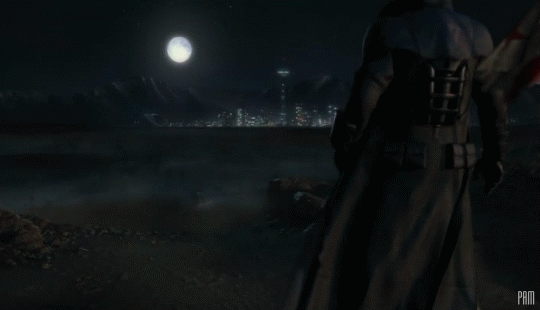
Conclusion
But the point I wanted to make isn't so much about its merits as a game, though that's the vehicle the story is told through. Games are by their nature, stories turned inside out. In a story, all the decisions are made. In a game, stories can be told by limiting you. Some games limit you to only gameplay, fixing the story in place. ("Save the princess by playing through all levels.") But RPGs like FO:NV make an art form of working with limitation that creates a sense of freedom and choice.
As a story, FO:NV bundles many possible outcomes while running you through key points in the game all the same. Your choices make the story turn different ways within the given boundaries. You can't escape the sense of this game having been designed from the story outwards, and that's why it's considered as a classic of the genre. It preserves the spirit of its predecessors, keeps on expanding their world, and manages to do that within the constraints the game designers faced - time limits on development, budget constraints, and not working within their own engine.
In a sense, it's quite a milestone of game development that FO:NV exists at all. Studios have failed over projects like this.
As a game using the same engine as FO3 and placed in the gap within FO3 and FO4, it still manages to feel different from both, more wide open. FO:NV manages space differently, so when it cramps you in (like entering a vault) it really feels cramped in. You get used to its wide open spaces, so when things tighten, suspense increases, too. In comparison, my last time playing FO3 was having enough after one too many jump scare encounter that its level designers set up again and again.
We will see if there will ever be a story like that told in a Fallout game, again. Open world games tend to subvert and sideline story, as quantity requires a parallelism of many level designers that undermines creative control. Fighting this tendency and having a good feel for vibes, themes, and stories is a challenge. Maybe that's why so many remember FO:NV so fondly.
5 notes
·
View notes